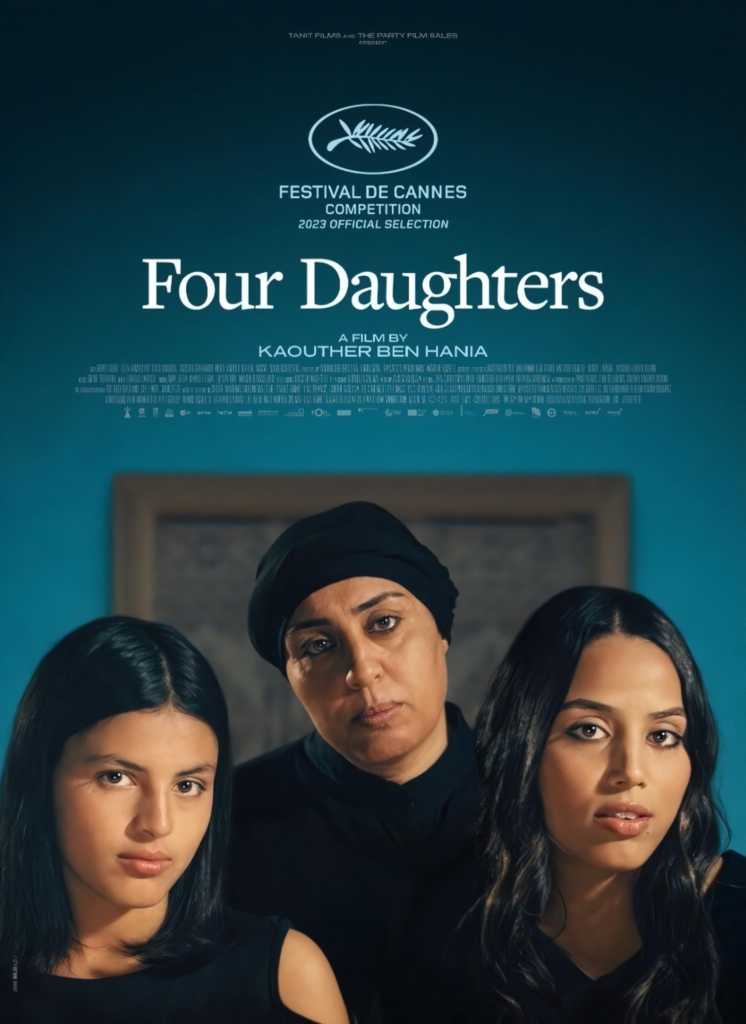Four Daughters Christian Review

You don’t stumble upon a film like Four Daughters every day. It isn’t merely a documentary, nor is it purely a work of fiction. It’s a blend of personal testimony and reenactment, a unique approach that takes you on a deeply emotional and thought-provoking journey. But from a Christian lens, this film evokes much more than mere contemplation—it’s a reflection on suffering, family, and the power of redemption. It’s raw. It’s painful. And yet, it’s filled with moments of resilience that only seem to shine brighter against the backdrop of darkness.
Family: The Imperfect Image of God’s Love
The family at the center of Four Daughters is far from perfect. But then again, who is? Olfa, the mother, takes the lead, and her daughters follow as the story unravels layer after layer of personal and collective trauma. Watching them navigate their relationships, one can’t help but feel the complexity of family dynamics. Family is often portrayed in Christian teachings as a reflection of God’s love—a safe haven built on sacrifice, mutual care, and guidance. In reality, however, it’s far more complicated.
The Bible tells us to “train up a child in the way he should go” (Proverbs 22:6), but Olfa’s story is a striking reminder that the challenges of parenting don’t come with an instruction manual. Her love is evident, but her scars run deep, and those scars shape her relationships with her daughters. There’s a generational echo of pain, and this is something many families can relate to. The tension between love and trauma, between nurturing and struggling to protect, speaks to the Christian call to love sacrificially. But it also reveals how difficult that call can be when personal wounds run deep.
The Burden of Suffering: A Christian Response
One of the most profound themes in Four Daughters is the exploration of suffering—suffering as a result of societal oppression, religious extremism, and deeply rooted patriarchal norms. These women’s lives are marked by a kind of oppression that, for some viewers, may seem distant, but it’s a stark reminder that much of the world still lives under the weight of systems that suppress rather than uplift.
For a Christian audience, the depiction of suffering isn’t new. Scripture is filled with stories of people enduring hardship, whether through personal choices or societal injustice. Romans 8:18 tells us, “The sufferings of this present time are not worth comparing with the glory that is to be revealed in us.” But when you’re in the midst of that suffering, the promise of future glory can feel distant. This film taps into that tension—the now versus the not-yet. The pain is real, but so is the hope, even when it feels like a mere whisper.
What’s remarkable about this film, from a Christian point of view, is how it acknowledges the suffering without being consumed by it. Yes, there is heartache and immense emotional weight, but there’s also a sense of survival, of resilience. Olfa’s daughters, despite their circumstances, refuse to be defined solely by their trauma. In this, the film embodies the Christian idea of redemption—not as a passive waiting for things to get better, but as an active engagement with life, even in the face of suffering.
Truth and Storytelling: When Memories Are Fragile
One of the more unconventional aspects of Four Daughters is the way it blurs the lines between documentary and reenactment. Olfa and her daughters share their stories, but actresses also step in to recreate moments from their past. This artistic choice might leave some viewers questioning what’s real and what’s performance, but that’s precisely the point. Memories are fragile things, often shifting and changing depending on who’s telling the story and how much time has passed.
As Christians, we believe in truth—Jesus Himself said, “I am the way, the truth, and the life” (John 14:6). But this film challenges us to think about how we perceive truth, especially when it comes to deeply personal experiences. Olfa’s story is true, but her daughters’ experiences are equally true, even when their recollections differ. This doesn’t negate the validity of anyone’s experience; rather, it adds depth to the understanding that human truth is multifaceted.
Four Daughters calls us to approach others’ stories with grace. We’re reminded of the importance of listening, not just to the words spoken, but to the emotions and experiences behind those words. It’s a call to empathy—a distinctly Christian virtue. After all, how can we “bear one another’s burdens” (Galatians 6:2) if we don’t take the time to understand them?
Women and Empowerment: The Imago Dei
At its core, Four Daughters is about women. It’s about their pain, their strength, and their beauty, even when the world around them tries to reduce them to something lesser. For Christian viewers, this taps into a foundational truth: that every person, man or woman, is created in the image of God (Genesis 1:27). This isn’t just a theological statement; it’s a profound recognition of each person’s intrinsic worth and dignity.
Olfa’s daughters are not victims in the simplistic sense. Yes, they’ve been hurt, and they’ve suffered at the hands of a society that doesn’t value them. But they are far more than their circumstances. They are survivors, resilient and strong, reclaiming their stories and identities. In many ways, their journey is a reminder that God sees and values the overlooked and oppressed. Jesus consistently uplifted those whom society deemed unworthy, and Four Daughters feels like an echo of that divine empathy.
Redemption Through Healing: A Christian Perspective
As the film progresses, it becomes clear that Four Daughters isn’t just about trauma; it’s about healing. The family’s decision to confront their past, to tell their story openly, is itself a step toward healing. From a Christian standpoint, this is incredibly significant. James 5:16 says, “Therefore, confess your sins to each other and pray for each other so that you may be healed.” While this verse speaks specifically to sin, the broader principle applies here: healing comes through honesty, through bringing our wounds into the light.
What makes Four Daughters such a profound experience is the way it showcases this process. It’s uncomfortable at times, yes, but that discomfort is necessary. It’s through confronting the painful parts of their past that Olfa and her daughters begin to move toward healing. And isn’t that what redemption is all about? It’s not about pretending the pain never existed, but about finding grace and strength in the midst of it.
Conclusion: A Film of Courage and Grace
Four Daughters is not an easy film to watch. It’s raw, emotionally intense, and filled with moments that make you question the ethics of filmmaking itself. But it’s also deeply human, filled with resilience, courage, and a desire for redemption. For Christian viewers, this film offers a powerful reflection on family, suffering, and the hope that comes through healing and grace.
It’s a film that reminds us of the complexities of life, the importance of truth, and the beauty of God’s image in every person. And while it may not have all the answers, it points us toward the One who does—offering a glimpse of the healing and redemption that is always possible, even in the most broken of places.
Rating: 8/10
Four Daughters is a courageous and emotionally charged exploration of trauma, truth, and family. It’s a film that resonates deeply with Christian themes of redemption and healing, though its intense subject matter may be challenging for some viewers.






